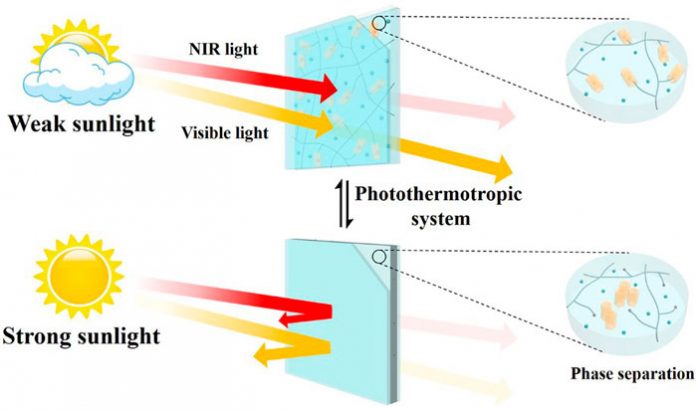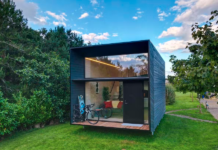Energy-saving technologies penetrate into all spheres of human life. The original liquid window panel developed at the Nanyang University of Technology in Singapore will help keep the heat accumulated during the day in the room during the night and protect from the scorching sun during the day.
The use of the invention in everyday life will reduce the cost of heating and air conditioning. According to the inventor, the installation of “smart” window panels will reduce the energy consumption for heating, ventilation and air conditioning of a building by 45% compared to traditional windows. At the same time, the efficiency of liquid glass panels is 30% higher than of the energy-efficient glass with a reduced emissivity offered by the industry.
Smart window glass performs its functions due to the characteristics of the gel, which fills the interior of the glass unit. The mixture of microhydrogel, water and stabilizer has been tested in various climatic conditions. The technology is effective thanks to the ability of the working mixture to change transparency under the influence of temperature.
During the day, the gel in the glass panel becomes opaque under the influence of sunlight and “consumes” the energy of the sun. By the evening, the panel cools down, the heat goes to heating the room, and the window becomes transparent again.
Testing the technology in accordance with the weather data in four cities (Shanghai, Las Vegas, Riyadh, and Singapore) found that the smart liquid window had the best energy efficiency in all four cities. In addition to being energy-efficient, smart insulating glass proved to be 15% better at protecting the room from noise than standard double glazing.
The UK is also exploring the possibility of using liquid panels, but the British suggested pumping out the water heated during the day and using it for heating. This method is more labor-intensive and requires additional equipment and energy consumption.







